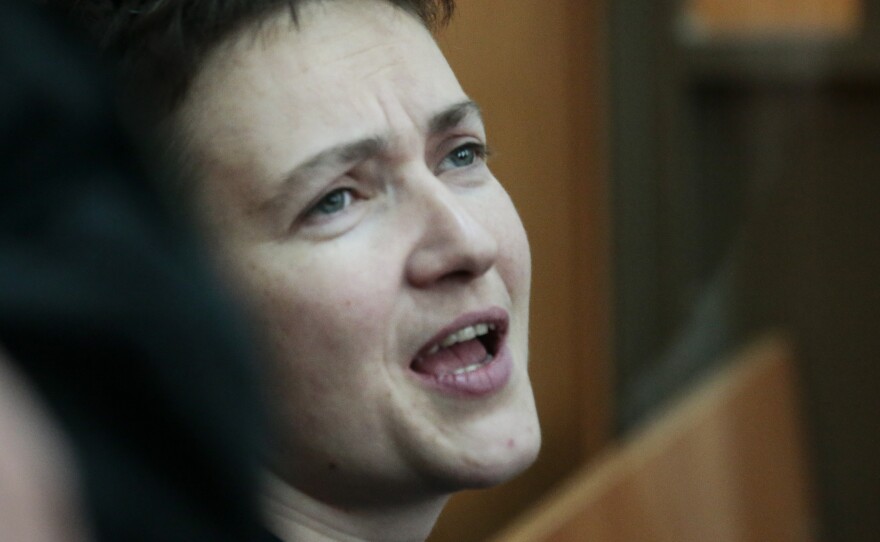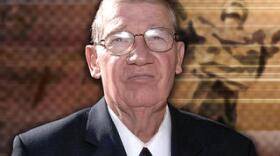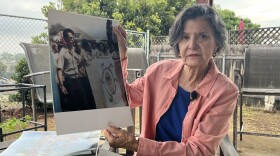
A Russian court has found Ukranian pilot Nadezhda Savchenko guilty of murdering two Russian journalists in Ukraine. She has been sentenced to 22 years in prison.
NPR's Corey Flintoff in Moscow tells our Newscast unit that Savchenko "was accused of directing artillery fire that killed two members of a Russian TV crew in July 2014."
Corey has reported that Savchenko's defense says that's impossible — that "cellphone records prove that she was captured by separatist militia fighters at least an hour before these journalists were killed."
She calls the trial a Russian propaganda stunt, Corey says. Here's more:
"Before the war, Savchenko was well-known in Ukraine as a pioneering female combat pilot."She was fighting as a volunteer against Russian-backed separatists in eastern Ukraine when she was captured and put on trial in Russia."
Savchenko burst into a patriotic Ukrainian song as the judge read her guilty verdict. Video from the court shows her lawyers reading and appearing to disregard the judge, though one cracks a smile as she starts to defiantly sing:
And Corey told Morning Edition earlier this month that as she gave her final statement, "she jumped up and she said basically if you want to know what I think of this court it's this — and she gave the judge the finger."
Ukrainian President Petro Poroshenko said in a statement that "Ukraine would not recognize the 'so-called' verdict," and said he was prepared to trade two detained Russian soldiers for Savchenko, the BBC reports.
State Department spokesperson John Kirby said in a statement that Savchenko's conviction "shows a blatant disregard for the principles of justice." He adds:
"For nearly two years, Russia has unjustly detained Savchenko on charges that have no basis in fact and has denied her the basic protections of the rule of law. She has reportedly endured interrogation, solitary confinement, and forced 'psychiatric evaluation."
And the BBC reports that Savchenko has become "a national hero" — she's even been elected to Ukraine's parliament while imprisoned in Russia.
Copyright 2016 NPR. To see more, visit http://www.npr.org/.






